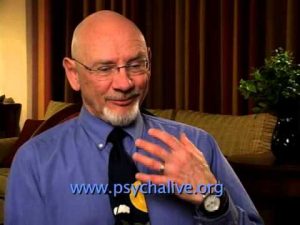How to Approach Learning Challenges with your Child

As loving parents, we want the best for our kids. If we can afford it, we take our children to the orthodontist to correct their teeth, so they have a beautiful smile and keep their teeth to old age. I find this to be a helpful metaphor for learning challenges. Learning challenges are unseen “misalignments” that can derail our children’s school experience, hijack their sense of self and limit them from reaching their academic, emotional and career best. While teeth are visible to all, learning challenges are not readily evident and therefore can unfortunately go unidentified.
This is a professional and personal issue for me. Our darling daughter was a delight, engaged and smiley. When she hit second grade we noticed she skipped lines while learning to read and could not tie her shoes. Being a graduate student in a doctoral program in psychology, I was learning about testing and began to think that this could be a resource for our daughter. I struggled with some learning issues in school and was acutely aware that unidentified learning issues can cause havoc. Armed with this experience, our daughter was tested at 7 years of age. From that expensive and arduous process, we learned that she has a visual processing challenge. With that knowledge, our daughter was able to embrace her strengths and accurately label “my brain is smart but my eyes are dumb.” She was able to look at, joke about and navigate around this weakness. It was no longer a place of vulnerability for her. Today, she is resourced, takes on a challenging academic load at school and has achieved beyond our wildest dreams. We can’t imagine what her life would have been like if she wasn’t armed with this self-knowledge.
The earliest clue that learning challenges may be in the mix is when we, as parents, have concerns about our child’s behavior or academic performance related to school including conflicts about getting homework done, talking too much in class, being the “class clown” or protesting about going to school. School is a significant part of a child’s life and development, giving him/her a sense of where they fit in the world compared to peers, their goodness in achieving their potential and meeting their parent’s expectations. From 5 years of age until adulthood, school time shapes much of how we see our selves, take on challenges and manage in the workforce.
So what happens when things don’t go as smoothly as they could? In the 1960s little was known about learning challenges, and labels like “minimal brain dysfunction” were applied to children with learning difficulties implying that there was a neurological basis for their difficulties, and at the time, there was little to be done about it. Children were told they were “lazy,” as parents claimed, “What’s wrong with you, you’re smarter than this! If you just applied yourself…” These types of comments blamed the child for what he/she could not do or change.
Just as our teeth will not move to the best position without braces, children can not compensate for some of their challenges on their own. While they are doing the best they can, they can’t describe what is not working for them in the classroom. Consequently all they see is how they don’t measure up and then begin to attack themselves with comments such as “I’m stupid” or blame others, “She/he/you never told me!” There are many adults who bare the scars of this deep shame and doubt their abilities. It is a life long injury that becomes hard to overcome.
Our children today have a different opportunity. We now have the Americans with Disabilities Act (1990, 2008), Individuals with Disabilities Education Act Amendments (1975, 1997, 2004) and guaranteed access to Free Appropriate Public Education (described in the Rehabilitation Act of 1973 and the IDEA) to assure that our children with learning differences are supported and can have a different trajectory from those in earlier generations.
A child’s life course can be significantly impacted if challenges are not identified early. When a child’s difficulties become so undeniable that it creates conflicts at home, poor grades, academic performance below the child’s ability, homework avoidance and concerns expressed by teachers and administrators, the child is already suffering an injury to their sense of self and efficacy in the world.
As parents, teachers and therapists, we are now behind the eight ball, working to recover lost ground academically and emotionally. Intervention at this point is about rebuilding a sense of self that honors what is and is not working well on behalf of the child’s learning experience. This is where testing can be invaluable. Clear identification of what the child’s strengths and weaknesses are provides a road map for all to follow. The child can be given the tools to understand himself, begin to consider means to achieve his capacity and begin to see himself as the “good kid” he is. There is significant time and cost in this process, but it is well worth the effort in terms of his future.
Early identification of challenges can provide the tools to avoid damaging experiences. This is where subtle cues need to be taken seriously. Parents know when something seems “different” or “off”. When Johnny is skipping lines, isn’t tying his shoes, forgets what he’s suppose to be doing, has difficulty sounding out words, generally seems smarter than how he is performing in school, not catching on, etc. it justifies a closer look. Teachers and pediatricians don’t have the same 24/7 exposure to the child’s life as parents.
In addition to the emotional consequences of not performing in the classroom to one’s potential, there are specific windows in a child’s development to learn key skills. These windows allow for rapid acquisition of new skills and after this window closes there is a potential derailment in subsequent learning. Therefore, time is often a significant factor and can play an important role in the outcome.
Obviously the worst case scenario is when a child struggles throughout their academic career without having challenges accurately identified. In these cases the global definition of self often includes doubt and shame. Identification of difficulties after experiencing academic challenges offers a way to get back on track to achieve potential. However, the best case scenario is getting ahead of the curve. Pinpointing lagging skills, and processing challenges, learning disabilities or attention challenges provides a way to focus on discrete difficulties and find tools to navigate around or through them. The most important benefit is that the individual has the opportunity to embraces themselves “warts and all” minimizing destructive self doubt, shame, blaming and self hate. So, in summary, my bias is to encourage testing. While expensive and arduous, it can be as important to your child’s future as orthodonture. Testing and intervention provided early, like braces, can avoid a life of difficulty in biting off and chewing what the world has to offer!
Tags: communication with children, education, good parenting, kids, learning disorders, parenting, parenting advice, parenting skills, parents, teachers, teaching childrenOne Comment
Leave a Reply
You must be logged in to post a comment.










good article